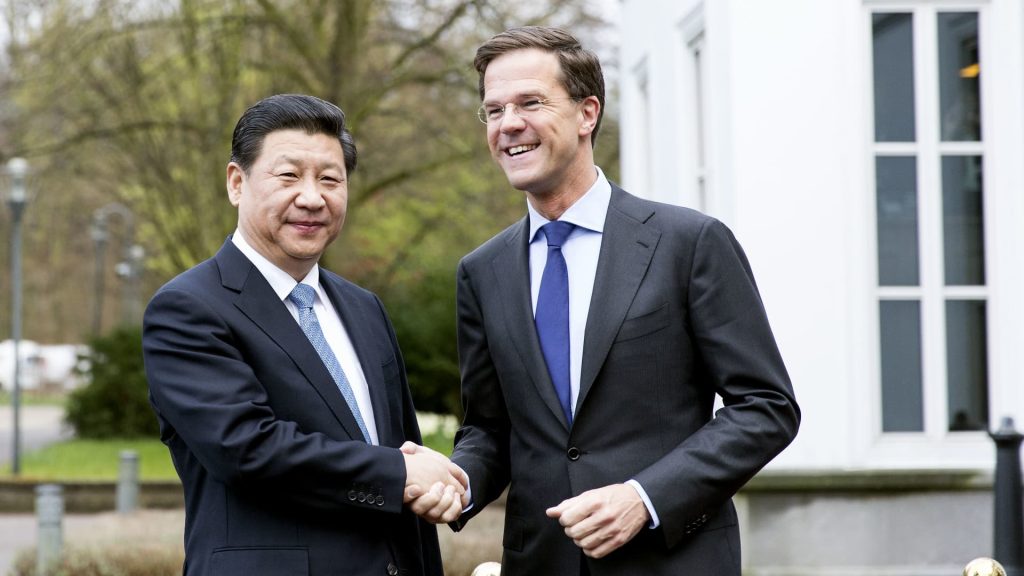Chinese President Xi Jinping emphasized the unstoppable progress of China’s scientific and technological advancements during a meeting with Dutch Prime Minister Mark Rutte in Beijing. The discussions focused on the semiconductor industry, which has been a source of tension between China and the Netherlands due to export restrictions on advanced chip technology. Xi highlighted China’s commitment to pursuing a win-win approach in international relations, emphasizing the country’s legitimate development rights. The Dutch government has blocked exports of critical semiconductor technology to China, including extreme ultraviolet lithography machines produced by Dutch tech giant ASML.
ASML is the only company capable of manufacturing EUV machines, which are essential for chip manufacturing and are used by companies like TSMC in Taiwan. The Netherlands recently imposed restrictions on the export of deep ultraviolet lithography systems to China, resulting in criticism from Beijing. Xi warned against creating scientific and technological barriers, advocating for cooperation instead of decoupling. He expressed readiness to continue dialogue with the Netherlands and urged the Dutch government to provide a fair and transparent business environment for Chinese enterprises. Rutte reassured that the Dutch government aims to limit the impact of export restrictions on any one country, emphasizing that decoupling is not a policy choice.
The discussions between President Xi and Prime Minister Rutte underscored the importance of international cooperation in the face of technological advancements. Xi’s remarks about China’s continued progress reflect the country’s determination to advance its technological capabilities despite challenges like export restrictions. The semiconductor industry plays a crucial role in global supply chains, and tensions between countries like China and the Netherlands highlight the complexities of international trade relations in the tech sector. Both leaders emphasized the importance of maintaining fair and transparent business environments to facilitate cooperation and prevent confrontation.
The limitations on semiconductor technology exports have had significant implications for China’s access to crucial manufacturing equipment. The Dutch government’s decisions have raised concerns about potential military applications of advanced chip technology, leading to restrictions on ASML’s exports. Despite these challenges, Xi reiterated China’s commitment to scientific and technological progress and called for dialogue with the Netherlands to address concerns and promote collaboration. Rutte’s stance on limiting the impact of export restrictions reflects a pragmatic approach to managing the tensions between China and the Netherlands in the semiconductor industry.
Ultimately, the discussions between President Xi and Prime Minister Rutte highlighted the need for cooperation and dialogue in addressing technological challenges. Both leaders emphasized the importance of maintaining fair and transparent business environments to facilitate international trade and prevent the escalation of tensions. The semiconductor industry’s critical role in global supply chains underscores the significance of finding mutually beneficial solutions to address concerns related to technology transfer and national security. As China continues to make strides in scientific and technological advancement, navigating complex issues like export restrictions will require ongoing engagement and cooperation between countries like China and the Netherlands.















